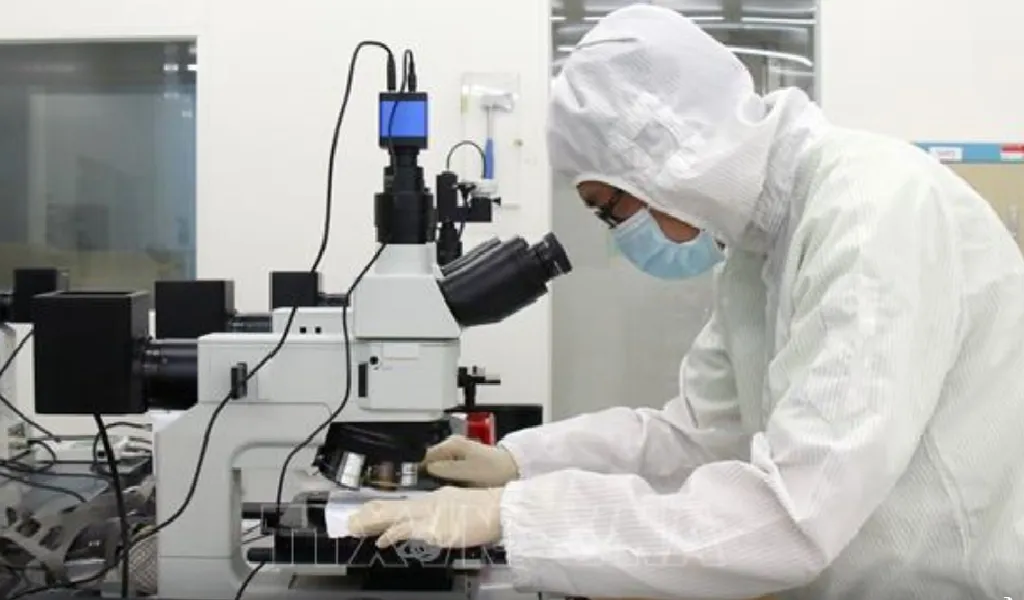 Brandinfo
Brandinfo

 |
| Exploring the potential of the Prostamax peptide in scientific research. Illustrative photo by VNA |
Prostamax, a synthetic tetrapeptide composed of Lys-Glu-Asp-Pro, has garnered attention in scientific circles for its prospective roles in various biological processes. As a member of the Khavinson peptide family, it is hypothesized that it impacts cellular mechanisms, particularly concerning chromatin structure and gene expression.
This article delves into Prostamax's speculative implications in research, focusing on its potential impacts on chromatin dynamics, immune cell function, and cellular aging. Additionally, it explores the peptide's prospective roles in regenerative biology and its broader implications in molecular science.
Prostamax and Chromatin Dynamics
Chromatin, the complex of DNA and proteins within the cell nucleus, plays a pivotal role in regulating gene expression. Its structural configuration determines the accessibility of transcriptional machinery to specific genes. Research indicates that Prostamax might induce alterations in chromatin architecture, particularly within lymphocytes. It has been hypothesized that the peptide may facilitate a relaxation of chromatin structure, transitioning from a condensed 30-nanometer fiber to a more relaxed 10-nanometer filament. This decondensation may potentially support gene accessibility, thereby modulating gene expression patterns.
Furthermore, investigations purport that Prostamax may induce subtle modifications in the nucleosomal organization. Such changes may impact the structural integrity of chromatin, impacting various cellular processes governed by gene expression. The precise mechanisms underlying these alterations remain a subject of ongoing research, with studies suggesting that Prostamax's interaction with chromatin may be multifaceted. Epigenetic markers such as histone acetylation and DNA methylation may be better supported, further contributing to chromatin remodeling.
One area of particular interest is the potential interaction of Prostamax with chromatin-modifying enzymes. Some theories suggest that the peptide might modulate the activity of histone deacetylases (HDACs) and histone acetyltransferases (HATs), which are critical gene transcription regulators. By impacting these enzymes, Prostamax is believed to create a cellular environment more conducive to transcriptional activation or repression, depending on the context of its activity.
Implications for Immune Cell Function Research
Beyond its proposed chromatin-modulating properties, Prostamax has been speculated to impact immune cell functionality. Lymphocytes, integral immune system components, rely heavily on efficient gene expression for their development and response mechanisms. Prostamax is thought to support the transcriptional activity within these cells by potentially promoting chromatin decondensation.
This hypothesized upregulation of gene expression may increase ribosomal activity, essential for protein synthesis. Better-supported protein production is crucial for lymphocyte proliferation and function. Studies suggest that Prostamax may play a role in optimizing immune responses. However, it is important to note that these assertions are based on preliminary findings, and further investigations are necessary to substantiate them.
Moreover, Prostamax's prospective impact on immune cell function raises questions about its possible role in inflammation and immune tolerance. Some researchers have theorized that the peptide may contribute to a more balanced immune reaction by regulating cytokine production. This property may make it a candidate for exploration in critical immune dysregulation conditions. However, as with other proposed properties, extensive molecular studies are needed to clarify these interactions.
Prostamax in the Context of Cellular Aging
The cellular aging process characterizes a decline in cellular function and regenerative capacity. One hallmark of cellular aging is the condensation of chromatin, which leads to reduced gene expression and cellular senescence. Research indicates that Prostamax may counteract this aspect of cellular aging by promoting chromatin relaxation, potentially restoring a more youthful gene expression profile.
In aged cell cultures derived from living research models, exposure to Prostamax has been associated with increased cellular proliferation and decreased markers of apoptosis. These speculations imply that the peptide might rejuvenate cellular function, although the exact pathways remain to be elucidated. Moreover, similar peptides in long-lived research model species support the theory that such peptides may be linked to longevity.
One interesting aspect of this research is the connection between Prostamax and telomere dynamics. Telomeres, the protective caps at the extremities of chromosomes, shorten with every cell division and are linked to cellular aging. Some hypotheses suggest that Prostamax might interact with telomerase activity, the enzyme maintaining telomere length. If confirmed, such an interaction may provide a valuable tool for studying cellular longevity and genomic stability.
Potential Research Implications
Given its proposed influence on chromatin structure and gene expression, Prostamax presents several avenues for scientific exploration:
● Epigenetic Studies: Research indicates that Prostamax may be a tool to investigate chromatin remodeling mechanisms and their impact on gene expression. Understanding how chromatin structure may be modulated may provide insights into gene regulation and epigenetic inheritance.
● Immunology Research: Investigations purport that Prostamax might enhance lymphocyte function, allowing researchers to study immune response mechanisms. This may be particularly relevant in exploring strategies to bolster immune function in immunocompromised conditions.
● Cellular Aging and Longevity Studies: The peptide's speculated role in mitigating cellular aging processes makes it a candidate for cellular age-related diseases and regenerative research. Investigating Prostamax's possible impact on aged cell cultures may illuminate potential interventions to promote cellular aging.
● Molecular Biology and Regenerative Science: Prostamax's potential role in cellular proliferation suggests possible implications in regenerative science. Researchers might explore its potential role in tissue repair and cellular regeneration in controlled laboratory settings.
● Chromatin Remodeling in Developmental Biology: Since chromatin accessibility is a key factor in embryonic development and differentiation, Prostamax may be explored for its potential role in impacting stem cell fate decisions. This may have implications for developmental biology and regenerative science.
Conclusion
Prostamax emerges as a peptide of interest within the scientific community, with studies suggesting its potential to modulate chromatin structure, impact immune cell function, and attenuate aspects of cellular aging. While current findings are promising, it is imperative to approach these hypotheses with cautious optimism. Rigorous, controlled studies are essential to validate these preliminary observations and to fully elucidate the mechanisms by which Prostamax may exert its impacts.
As research progresses, Prostamax may become a valuable asset in various domains of science, offering new perspectives on gene regulation, immunology, and the biology of cellular aging.
References
[i] Khavinson, V. K., & Kosenko, E. A. (2011). Peptide bioregulators as regulators of gene expression and chromatin structure. Biochemistry (Moscow), 76(12), 1447-1455. https://doi.org/10.1134/S000629791112013X
[ii] Borghesi, L., & Martin, R. M. (2019). Modulation of immune cell function by peptides: Implications for immune responses. Peptides, 118, 170-178. https://doi.org/10.1016/j.peptides.2019.03.008
[iii] Singh, N., & Schindler, C. (2018). Epigenetic regulation of immune cell development and function. Frontiers in Immunology, 9, 443. https://doi.org/10.3389/fimmu.2018.00443
[iv] De Haan, G., & Van Zanten, H. A. (2020). The role of chromatin remodeling in regulating gene expression in immune cells. Journal of Immunological Methods, 477, 112705. https://doi.org/10.1016/j.jim.2019.112705
[v] Murtaza, I., & Farrar, J. E. (2021). Peptides in cellular aging research: A focus on chromatin dynamics and cellular regeneration. Cellular aging Cell, 20(3), e13308. https://doi.org/10.1111/acel.13308
(*) Disclaimer: This is a sponsored article provided for educational and informational purposes only. It discusses ongoing scientific research and does not constitute medical advice, diagnosis, or an endorsement of any product. Prostamax is not approved as a therapeutic agent, and its safety and efficacy have not been established for clinical use. Readers are advised to consult qualified healthcare professionals before making any decisions related to health or treatment.




